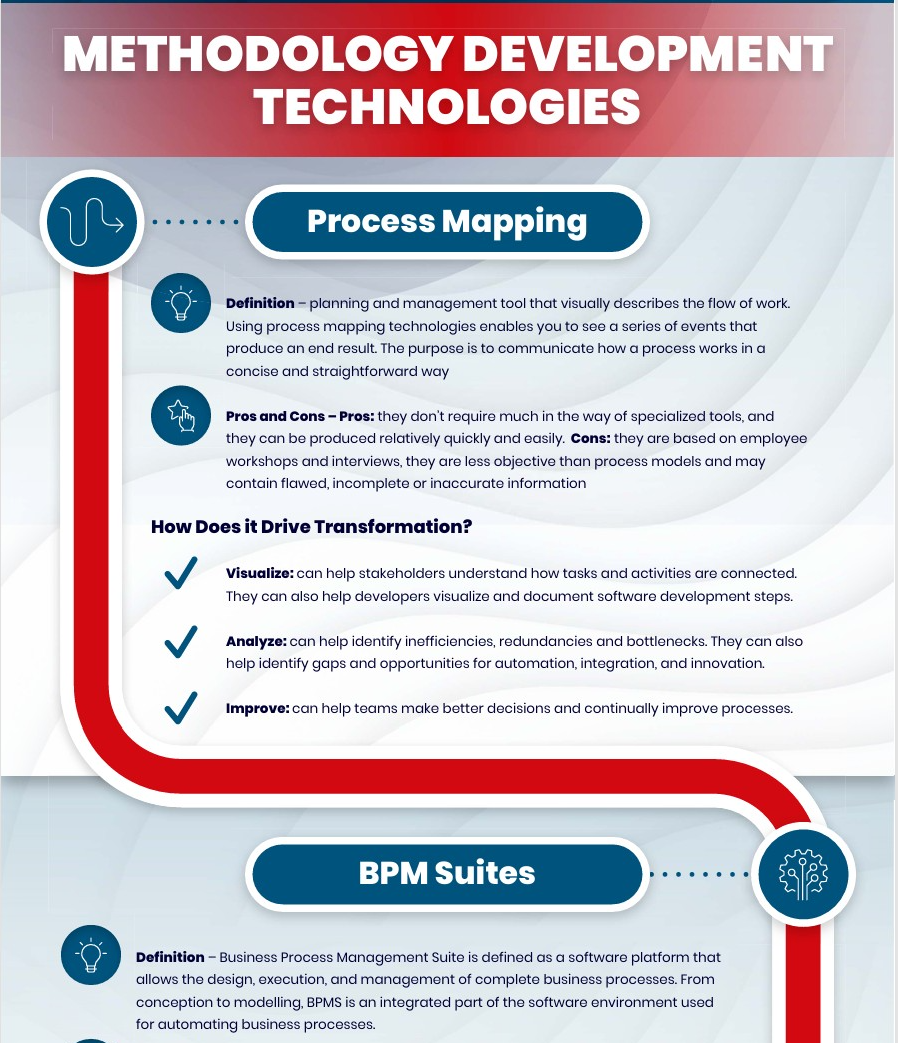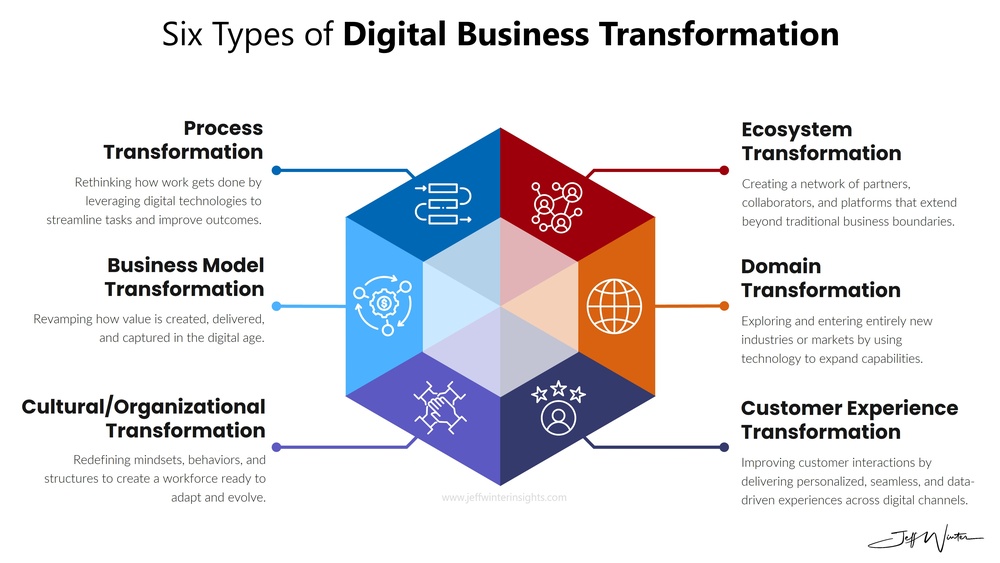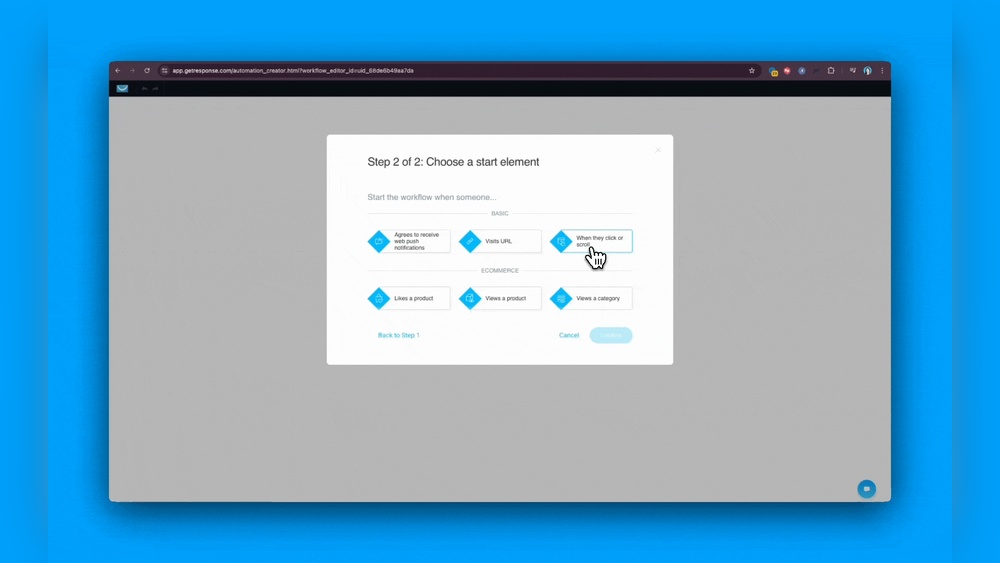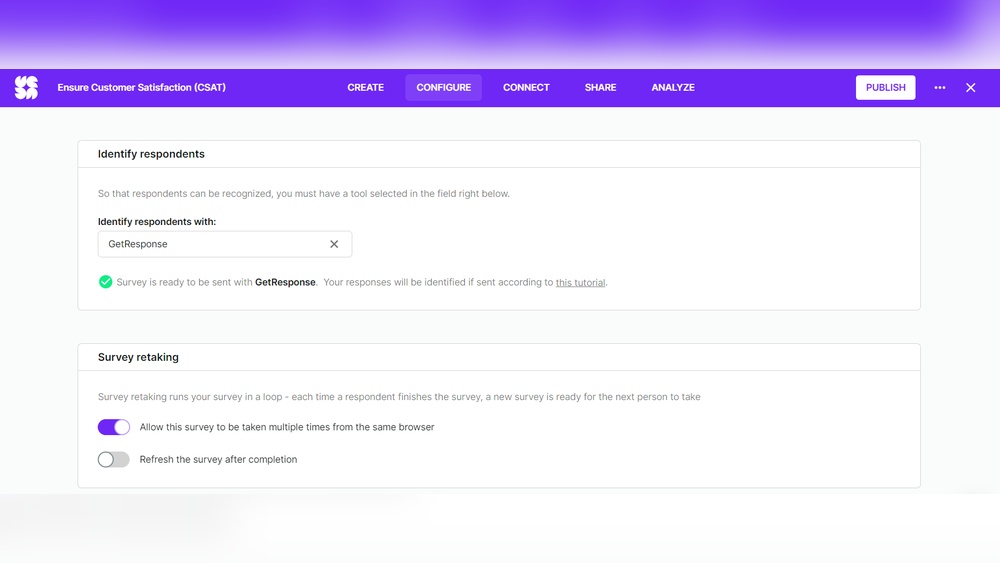Are you ready to take your business to the next level? Digital transformation is no longer a choice—it’s a necessity.
But how do you make this shift smooth and successful? The answer lies in the right application tools. These tools are designed to simplify your processes, boost team collaboration, and help you make smarter decisions faster. Imagine having everything you need to track progress, manage tasks, and connect with your customers—all in one place.
Curious about which tools can drive your digital transformation forward and how they can reshape your business? Keep reading to discover how application tools can be the game-changer you’ve been looking for.
Role Of Application Tools
Application tools play a vital role in business digital transformation. They help companies adopt new technologies and improve operations. These tools simplify tasks, improve communication, and enhance data management. They also support faster decision-making and increase overall efficiency.
Businesses can use application tools to automate routine processes. This reduces human error and frees up time for more important work. Tools also help teams collaborate better across different locations. They keep everyone aligned and focused on shared goals.
Key Features Of Digital Tools
Digital tools offer several important features that support transformation. Many provide real-time data tracking to monitor progress and results. Automation features reduce manual work and speed up processes. Integration capabilities allow tools to work with existing systems smoothly.
Security is another key feature. Good tools protect sensitive information and ensure data privacy. User-friendly interfaces make it easy for employees to learn and use the tools effectively. Customization options allow businesses to tailor tools to their unique needs.
Popular Tools In Business Transformation
Several digital tools are popular for managing business transformation. Project management platforms like Asana, Trello, and Monday.com help teams organize tasks and deadlines. These tools improve transparency and keep projects on track.
Communication apps such as Slack and Microsoft Teams enhance team collaboration. They support instant messaging, video calls, and file sharing. Data analytics tools like Tableau and Power BI help businesses analyze information and make smart decisions.
Customer relationship management (CRM) tools like Salesforce assist in managing customer data and improving service. Cloud platforms such as AWS and Google Cloud provide scalable infrastructure for digital operations. Together, these tools drive effective digital transformation.

Credit: www.lsdigital.com
Enhancing Operational Efficiency
Enhancing operational efficiency is a key benefit of using application tools in digital transformation. These tools help businesses run smoother and faster. They reduce human error and free up employee time. This allows teams to focus on more important tasks. Improved efficiency leads to better productivity and higher profits.
Streamlining Workflows
Application tools organize and simplify workflows. They connect different tasks and departments. This reduces delays and miscommunications. Workflows become clear and easy to follow. Teams can track progress in real-time. This helps identify and fix bottlenecks quickly. Streamlined workflows save time and keep projects on schedule.
Automating Routine Tasks
Many daily tasks are repetitive and time-consuming. Application tools automate these routine jobs. Automation handles data entry, report generation, and reminders. This cuts down manual work and errors. Employees can spend more time on creative and strategic work. Automation improves accuracy and speeds up processes. It also keeps operations running 24/7 without breaks.
Reducing Costs With Technology
Using application tools lowers business expenses. Automation reduces the need for extra staff. Digital tools cut paper, printing, and storage costs. Cloud-based applications reduce IT infrastructure expenses. Efficient processes reduce waste and resource use. Technology helps businesses do more with less. Cost savings can be invested in growth and innovation.
Driving Growth Through Innovation
Driving growth through innovation is essential for businesses undergoing digital transformation. Application tools empower companies to explore new ideas and improve operations. They help organizations stay competitive and adapt quickly to market changes.
Innovative digital tools support smarter workflows, enhance decision-making, and boost customer satisfaction. This creates a strong foundation for steady growth and success.
Data-driven Decision Making
Application tools gather and analyze large amounts of data. This helps leaders make informed choices based on facts, not guesses. Real-time insights reveal trends and customer behaviors. Businesses can adjust strategies quickly to meet market demands. Data-driven decisions reduce risks and increase efficiency across departments.
Improving Customer Experiences
Innovative applications personalize customer interactions. They track preferences and feedback to tailor services. Faster response times and smoother communication improve satisfaction. Tools automate support tasks, freeing staff to focus on complex issues. Better customer experiences build loyalty and encourage repeat business.
Accelerating Product Development
Application tools streamline product design and testing phases. Teams collaborate seamlessly using cloud platforms and project management apps. Automated workflows reduce delays and errors. Rapid prototyping and feedback loops lead to faster launches. Quicker product development keeps companies ahead of competitors and meets customer needs promptly.

Credit: www.ssonetwork.com
Integrating Technology With Processes
Integrating technology with processes is a vital step in digital transformation. It helps businesses adapt quickly and work smarter. Technology alone is not enough. Aligning it with existing workflows boosts efficiency and reduces errors.
This integration creates seamless operations. It allows teams to focus on growth and innovation. Application tools play a key role by automating routine tasks and connecting systems.
Modernizing Infrastructure
Modern infrastructure supports new digital tools smoothly. Cloud services replace outdated hardware. This change reduces costs and increases flexibility.
Application tools help migrate data and manage networks easily. They ensure systems run without interruptions. Faster updates and better security protect business information.
With modern infrastructure, companies respond faster to market changes. This agility leads to better customer experiences and higher satisfaction.
Optimizing Internal Operations
Internal operations improve by automating repetitive tasks. Application tools streamline workflows across departments. This reduces manual errors and saves time.
Tools for project management, communication, and data sharing keep teams aligned. They provide clear visibility into progress and bottlenecks. Employees spend more time on strategic work.
Optimization also means better resource use. Application tools track performance and identify areas needing improvement. This supports continuous growth and efficiency.
Empowering People And Culture
Empowering people and culture forms the heart of digital transformation in business. Application tools play a key role in this by supporting employees and shaping a positive culture. They help workers learn new skills, adapt quickly, and stay motivated. This leads to a stronger, more agile workforce ready for change.
Building Digital Skills
Application tools provide easy access to learning resources. Employees can quickly gain new digital skills needed for their roles. Training modules, tutorials, and interactive content fit different learning styles. These tools track progress and highlight areas for improvement. A skilled workforce improves efficiency and drives innovation.
Fostering Agile Mindsets
Agile thinking helps teams respond fast to change. Application tools support collaboration, quick feedback, and flexible planning. Teams break projects into smaller tasks and adjust plans easily. This mindset reduces delays and boosts productivity. Agile work culture grows through consistent use of these tools.
Enhancing Employee Engagement
Engaged employees contribute more and stay loyal. Application tools keep workers connected with clear communication channels. They offer platforms for sharing ideas and recognizing achievements. Regular updates and easy access to project status increase transparency. Engaged teams create a positive culture and better business results.
Measuring Transformation Success
Measuring transformation success is a vital step in any digital transformation journey. It helps businesses understand if their efforts are leading to real improvements. Without clear measurement, it is hard to know if changes bring value or need adjustment.
Application tools provide data and insights that simplify this process. They offer ways to track progress and evaluate outcomes clearly. This ensures companies stay on the right path and meet their transformation goals.
Tracking Key Performance Indicators
Key Performance Indicators (KPIs) show how well digital initiatives perform. These metrics highlight areas of success and those needing improvement. Application tools help collect and analyze KPIs in real time. Businesses can monitor customer satisfaction, process efficiency, and revenue growth easily. Tracking KPIs regularly keeps teams informed about progress. It also helps in making data-driven decisions quickly.
Adjusting Strategies Based On Insights
Insights from application tools reveal what works and what does not. Businesses can use this information to fine-tune their strategies. Adjusting plans based on real data avoids wasted time and resources. It promotes a flexible approach that adapts to changing market needs. This ongoing improvement increases the chance of transformation success. Application tools support this by providing clear, actionable feedback.
Overcoming Common Challenges
Digital transformation often faces hurdles that slow progress. Application tools can help clear these obstacles. Overcoming common challenges is key to making digital change successful. Businesses must address resistance, security, and alignment to move forward confidently.
Managing Change Resistance
Employees may resist new tools and processes. Fear of the unknown or extra work causes hesitation. Application tools with easy interfaces reduce this fear. Training and support ease transitions. Clear communication about benefits helps build acceptance. Change becomes less intimidating with step-by-step guidance.
Ensuring Data Security
Data breaches damage trust and halt progress. Application tools with strong security protect sensitive information. Features like encryption and access control limit risks. Regular updates fix vulnerabilities and improve safety. Secure tools build confidence among teams and customers. Data protection is essential for lasting digital transformation.
Aligning Tools With Business Goals
Using tools that do not fit business needs wastes resources. Application tools must match company objectives and workflows. Customizable tools adapt to specific goals and challenges. Clear alignment ensures better productivity and results. Leaders should evaluate tools before adoption. Proper fit accelerates transformation and supports growth.

Credit: devoxsoftware.com
Frequently Asked Questions
Which Tool Is Often Used To Manage Digital Transformation Projects?
Popular tools for managing digital transformation projects include Microsoft Project, Monday. com, Trello, Asana, and ClickUp. These platforms enhance task management, communication, and progress tracking, ensuring efficient project execution and collaboration across teams.
What Do You Mean By Digital Transformation And Its Application?
Digital transformation means integrating digital technology into all business areas. It improves processes, products, operations, and customer experiences. Applications include automating workflows, enhancing data analysis, and fostering innovation to boost efficiency and competitiveness.
What Are The 4 Pillars Of Digital Transformation?
The four pillars of digital transformation are technology, data, processes, and people. They drive innovation, efficiency, and growth.
How Can Technology And Digital Tools Enhance Operational Efficiency In A New Business?
Technology and digital tools automate tasks, streamline workflows, and improve communication. They enable real-time data analysis, boosting decision-making and productivity in new businesses.
Conclusion
Application tools make digital transformation simpler and faster. They help teams communicate and track progress clearly. These tools improve business workflows and reduce errors. Employees work smarter, not harder, using the right applications. Digital transformation becomes a shared goal across the company.
Investing in good tools supports growth and customer satisfaction. Small steps with these tools lead to big changes. Businesses that use them stay flexible and competitive. Choose tools that fit your needs and goals well. Success comes from steady improvement and teamwork.







